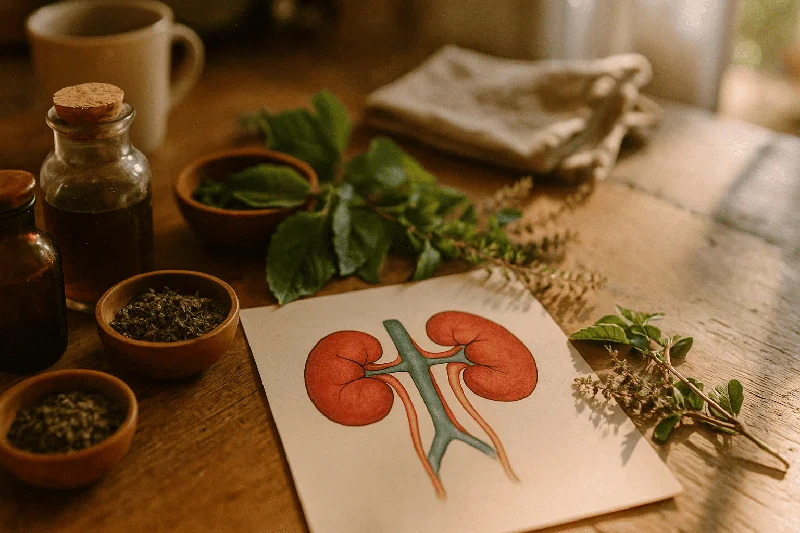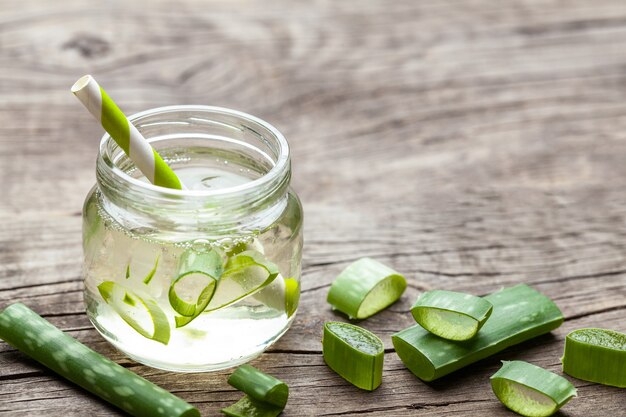Ask Ayurvedic doctor a question and get a consultation online on the problem of your concern in a free or paid mode. More than 2,000 experienced doctors work and wait for your questions on our site and help users to solve their health problems every day.
Shop Now in Our Store
High Creatinine Treatment in Ayurveda – Natural Remedies for Kidney Health

Introduction to High Creatinine and Ayurveda
High creatinine levels in the blood indicate impaired kidney function, as creatinine is a waste product that is typically filtered out by the kidneys. Elevated creatinine levels can be a sign of chronic kidney disease (CKD), dehydration, or other underlying health conditions. In Ayurveda, kidney health is vital for maintaining balance in the body’s metabolic processes. Ayurvedic treatments focus on restoring kidney function, detoxifying the body, and addressing the root cause of high creatinine through natural remedies and lifestyle changes.
Historical Roots & Ayurvedic Significance
In Ayurveda, the kidneys are closely linked to the Apana Vata (the vital air responsible for elimination) and are considered essential for detoxifying the body and maintaining fluid balance. Ayurveda emphasizes holistic treatments that focus on balancing the Vata, Pitta, and Kapha doshas to support kidney function. Ayurvedic therapies aim to reduce Ama (toxins), support proper digestion, and strengthen the kidneys by using specific herbs, dietary changes, and detoxification methods.
Key Ayurvedic Remedies for High Creatinine
1. Punarnava (Boerhavia diffusa)
Punarnava is one of the most effective Ayurvedic herbs for kidney health. It is known for its diuretic, anti-inflammatory, and detoxifying properties, which help reduce high creatinine levels by improving kidney function and promoting the elimination of waste products.
- Benefits: Reduces fluid retention, supports kidney detoxification, and lowers creatinine levels.
- How to use: Punarnava can be consumed in powder, tablet, or juice form. Typically, a dosage of 1-2 teaspoons of Punarnava powder mixed with warm water is recommended daily.
2. Gokshura (Tribulus terrestris)
Gokshura is another herb commonly used in Ayurveda to support kidney health. It helps in promoting urine flow, reducing swelling, and improving overall kidney function. By acting as a mild diuretic, it helps flush out excess waste from the body.
- Benefits: Improves kidney function, reduces swelling, and supports healthy urine flow.
- How to use: Gokshura can be consumed in powder form or as a decoction. A typical dosage is 1-2 teaspoons of powder mixed with warm water.
3. Aloe Vera (Aloe barbadensis)
Aloe Vera is known for its detoxifying and anti-inflammatory properties. It helps to soothe the kidneys and reduce inflammation caused by high creatinine levels. Aloe Vera supports the elimination of toxins from the body, which is crucial for improving kidney function.
- Benefits: Reduces inflammation in the kidneys, supports detoxification, and promotes kidney function.
- How to use: Aloe Vera juice can be consumed daily (about 30-40 ml per day). Fresh Aloe Vera gel can also be used for internal consumption or in the form of capsules.
4. Ashwagandha (Withania somnifera)
Ashwagandha is an adaptogenic herb that helps reduce stress, improve overall vitality, and strengthen the immune system. It has anti-inflammatory properties that support kidney health, particularly in cases of kidney damage caused by high creatinine levels.
- Benefits: Improves kidney function, reduces inflammation, and supports vitality.
- How to use: Ashwagandha can be consumed in powder form (1 teaspoon) mixed with warm water or milk. It can also be taken in capsule form, as per the practitioner’s recommendation.
5. Triphala
Triphala, a blend of Amalaki, Bibhitaki, and Haritaki, is a renowned Ayurvedic formulation for overall detoxification. It supports healthy digestion, removes toxins from the body, and improves renal health by cleansing the kidneys.
- Benefits: Detoxifies the body, supports digestive health, and aids kidney function.
- How to use: Triphala powder can be taken with warm water before bedtime (1 teaspoon). It can also be consumed in tablet or capsule form.
6. Arjuna (Terminalia arjuna)
Arjuna is an Ayurvedic herb that is known for its cardioprotective and kidney-protective properties. It helps strengthen the kidneys, improve circulation, and reduce oxidative stress, which can contribute to elevated creatinine levels.
- Benefits: Protects the kidneys from damage, improves circulation, and lowers creatinine levels.
- How to use: Arjuna powder can be consumed (1 teaspoon) with warm water, or it can be taken in tablet or capsule form.
7. Celery (Apium graveolens)
Celery is known for its mild diuretic properties and is often used to promote kidney health. It helps reduce creatinine levels by improving kidney function and flushing out excess toxins.
- Benefits: Acts as a natural diuretic, supports kidney function, and helps reduce creatinine levels.
- How to use: Celery can be consumed in juice form or as part of salads and soups. Celery seed powder is also used for kidney health.
How Ayurvedic Treatments Help in Managing High Creatinine Levels
Ayurvedic treatments for high creatinine focus on improving kidney function by:
- Detoxifying the Body: Herbs like Punarnava, Triphala, and Aloe Vera help detoxify the kidneys by eliminating Ama (toxins) that may impair kidney function.
- Supporting Proper Urine Flow: Diuretic herbs like Gokshura and Celery promote healthy urine flow, which aids in flushing out excess waste and creatinine from the kidneys.
- Reducing Inflammation: Anti-inflammatory herbs like Ashwagandha and Arjuna help reduce kidney inflammation and protect them from further damage.
- Restoring Kidney Function: Adaptogens like Ashwagandha support overall kidney health by improving vitality, reducing stress, and enhancing immune function.
Dietary Modifications for High Creatinine Levels
In addition to herbal treatments, dietary changes are essential for managing high creatinine levels. Ayurveda recommends:
- Increase water intake to stay hydrated and support kidney function.
- Consume a kidney-friendly diet that includes fresh fruits and vegetables, whole grains, and plant-based proteins.
- Limit salt and processed foods, as excess sodium can increase the strain on the kidneys.
- Avoid high-protein diets, especially animal-based proteins, as they may elevate creatinine levels.
Lifestyle Tips for Kidney Health
- Avoid alcohol and smoking, which can worsen kidney function and increase creatinine levels.
- Engage in regular, moderate exercise to support overall circulation and kidney health.
- Practice stress-reducing techniques like yoga, meditation, and pranayama to support kidney function and reduce strain on the body.
Frequently Asked Questions (FAQ)
What Ayurvedic herbs can help lower creatinine levels?
Ayurvedic herbs such as Punarnava, Gokshura, Arjuna, and Aloe Vera are known to help lower creatinine levels by improving kidney function and promoting detoxification.
How does Punarnava help in managing high creatinine levels?
Punarnava acts as a natural diuretic and helps reduce swelling and fluid retention. It supports kidney function, detoxifies the body, and helps lower creatinine levels by improving urine output.
Can Ayurvedic treatment completely cure high creatinine levels?
While Ayurvedic treatments can help improve kidney function and manage high creatinine levels, they should be used as part of a comprehensive treatment plan under the guidance of a healthcare provider. Severe kidney damage may require additional medical intervention.
Is Aloe Vera effective for kidney detoxification?
Yes, Aloe Vera has anti-inflammatory and detoxifying properties that can help soothe and protect the kidneys, promote waste elimination, and improve kidney function, thus helping in the reduction of creatinine levels.
How long should I use Ayurvedic remedies for high creatinine?
The duration of treatment will vary depending on the individual’s condition and response to the remedies. It is essential to follow the dosage instructions provided by an Ayurvedic practitioner and monitor kidney function regularly.
Can lifestyle changes help in managing high creatinine levels?
Yes, lifestyle changes such as maintaining a kidney-friendly diet, increasing water intake, avoiding smoking and alcohol, and practicing stress management can significantly help in managing high creatinine levels and improving kidney health.
Are there any side effects of Ayurvedic treatments for high creatinine?
Ayurvedic treatments are generally safe when used as prescribed. However, it is important to consult with an Ayurvedic practitioner before starting any herbal remedy to ensure compatibility with your health conditions and any medications you may be taking.
Conclusion & Expert Insights
High creatinine levels are an indication of impaired kidney function, and Ayurveda offers several natural remedies to help support kidney health, detoxify the body, and improve overall vitality. By using herbs like Punarnava, Gokshura, and Arjuna, combined with dietary changes and lifestyle modifications, individuals can work towards improving kidney function and managing creatinine levels. Always consult with a qualified Ayurvedic practitioner to ensure safe and effective treatment.
References & Further Reading
- Sharma, P.V. (1995). Ayurvedic Healing: A Comprehensive Guide.
- Lad, V. (2002). Ayurveda: The Science of Self-Healing.
- Journal of Ayurveda and Integrative Medicine for research on kidney health and Ayurvedic detoxification.
- National Institute of Ayurveda:
This article is checked by the current qualified Dr Sujal Patil and can be considered a reliable source of information for users of the site.



